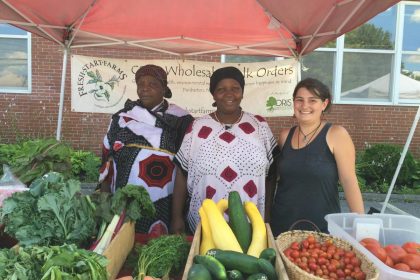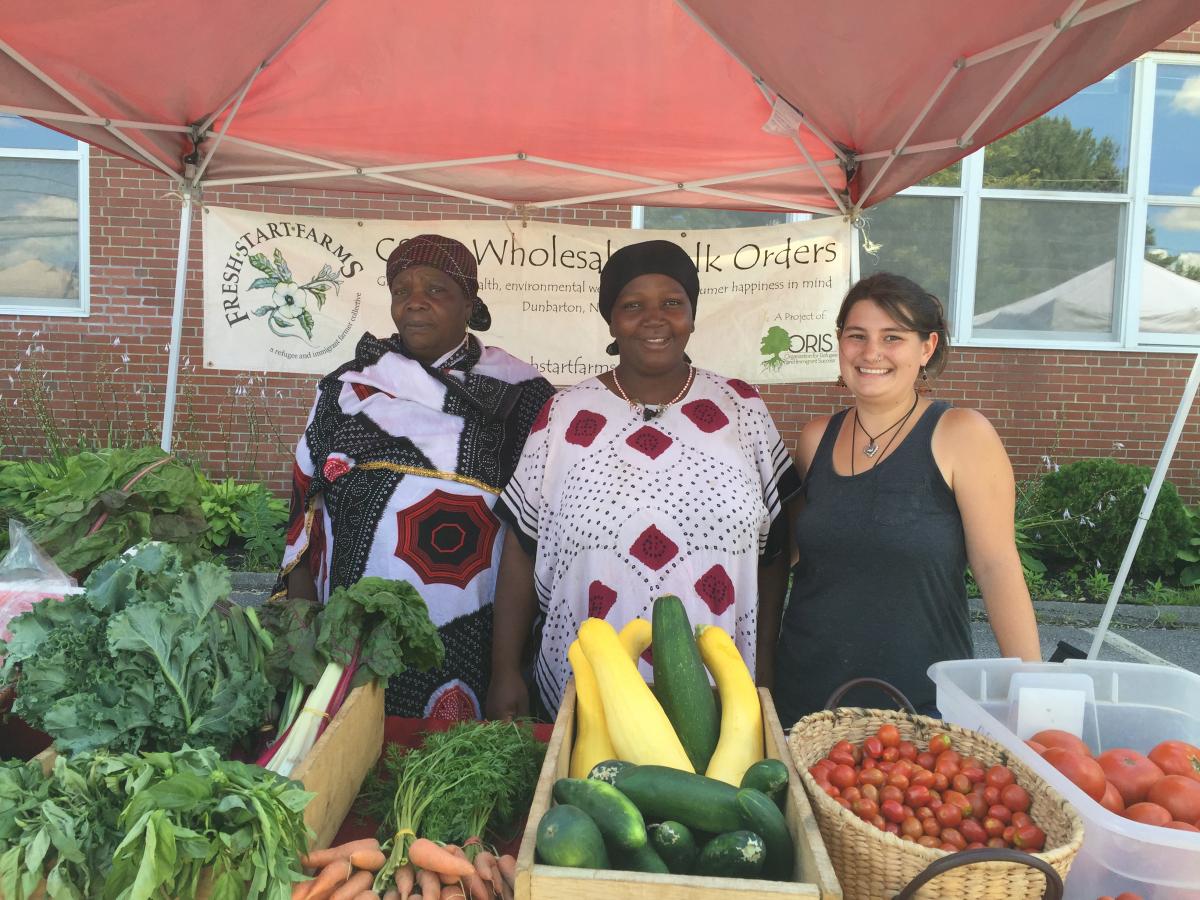
 Fresh Start Farms is a collective of refugee and immigrant farmers participating in the New American Sustainable Agriculture Project (NASAP). A project of the Organization for Refugee and Immigrant Success (ORIS), the purpose of the program is two-fold: help new immigrants establish a secure food source and a sustainable small business.
Fresh Start Farms is a collective of refugee and immigrant farmers participating in the New American Sustainable Agriculture Project (NASAP). A project of the Organization for Refugee and Immigrant Success (ORIS), the purpose of the program is two-fold: help new immigrants establish a secure food source and a sustainable small business.
Currently, the farm is a collective of 24 immigrant and refugee farmers, representing Somali-Bantu, Bhutanese, Burundi, and Congolese communities. NASAP provides technical assistance as well as growing space on its seven-acre site in Dunbarton, New Hampshire, with nine out of 24 farmers growing on a commercial scale.
Part of the collective is the mother-daughter duo of Fatuma and Isho. The two fled their homeland, Somalia, in the early 1990s and immigrated to the United States in 2004 from a refugee camp in Kenya. Isho has been involved in NASAP since 2007. Fatuma went through NASAP’s new farmer trainings this winter and started farming this spring.
The two have separate plots in Dunbarton. Isho’s plot is around a quarter of an acre and Fatuma’s is around an eighth of an acre. On their land, the farmers grow an array of vegetables, including tomatoes, peppers, beans, basil, and squash. Isho is drawn to farming because of her love for fresh and healthy food. She also enjoys how growing her own food gives her the opportunity to have a source of income.
The mother, Fatuma, was a farmer in her native land of Somalia, growing her own fruits and vegetables, both for subsistence and sale. Here in the States, Fatuma teaches her daughter farming and production, while Isho teaches her mother the business aspects of farming. Both have filled in the gaps in each other’s knowledge base, while NASAP has developed and sharpened both of their skill sets. Together, the warm and amiable pair has a sustainable business model on their hands. Isho and Fatuma sell their produce through Community Supported Agriculture (CSA) memberships as well as weekly farmers markets in the region.
When asked about the difference between farming in the States and farming in Somalia, Fatuma says farming in Somalia is labor-intensive. Without irrigation and technology, farming in Somalia is more taxing. Additionally, there are more market channels for their produce in the States. In Somalia, Fatuma sold the produce at a market once a month. Here, the family has numerous outlets, including a CSA and weekly markets, which allows them to generate a greater revenue stream.
As the nation’s demographics become increasingly diverse, this change is reflected in the agricultural sector. Isho and Fatuma are part of a collective of new American farmers who are adding diversity and inspiration to a growing and vibrant occupation.




